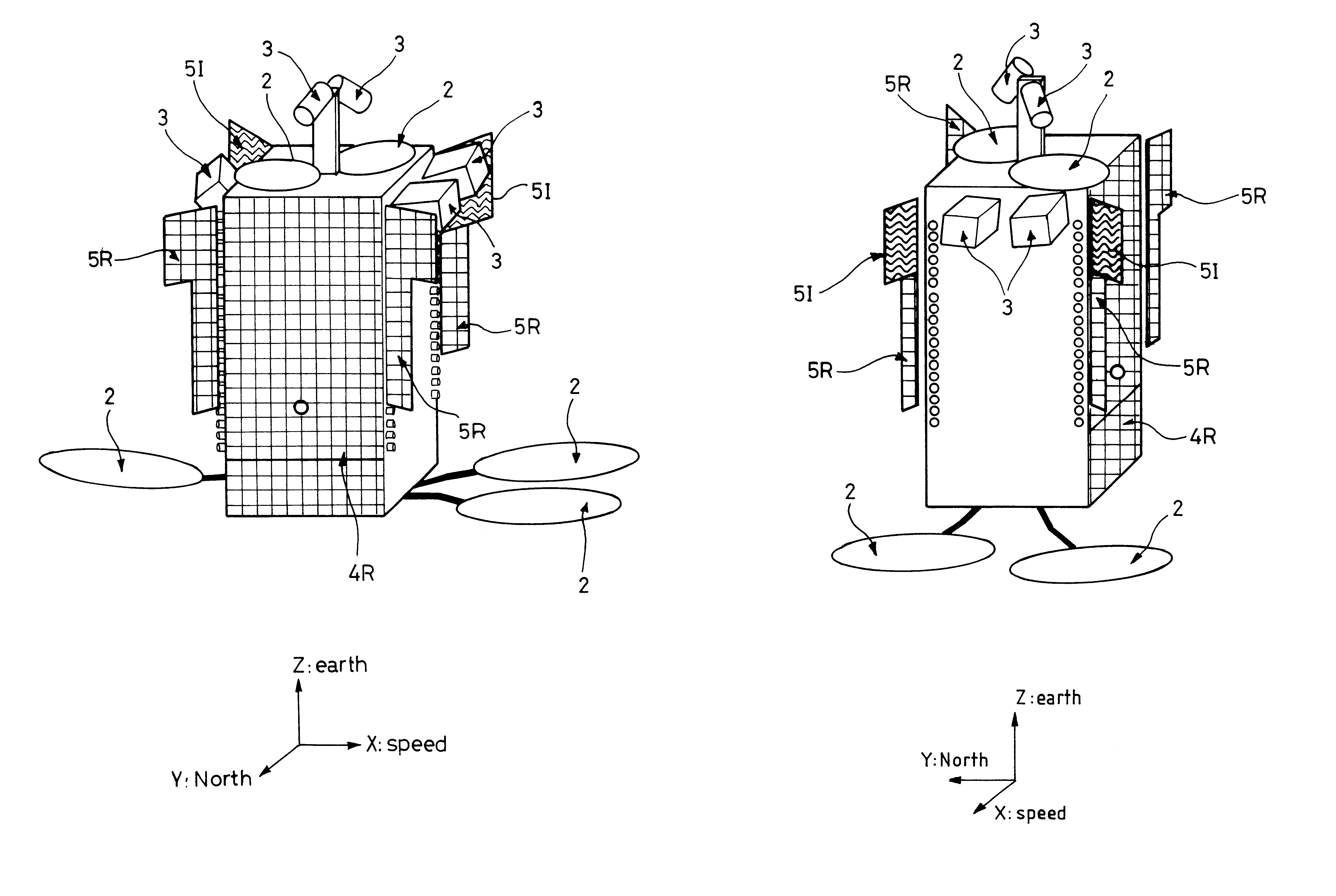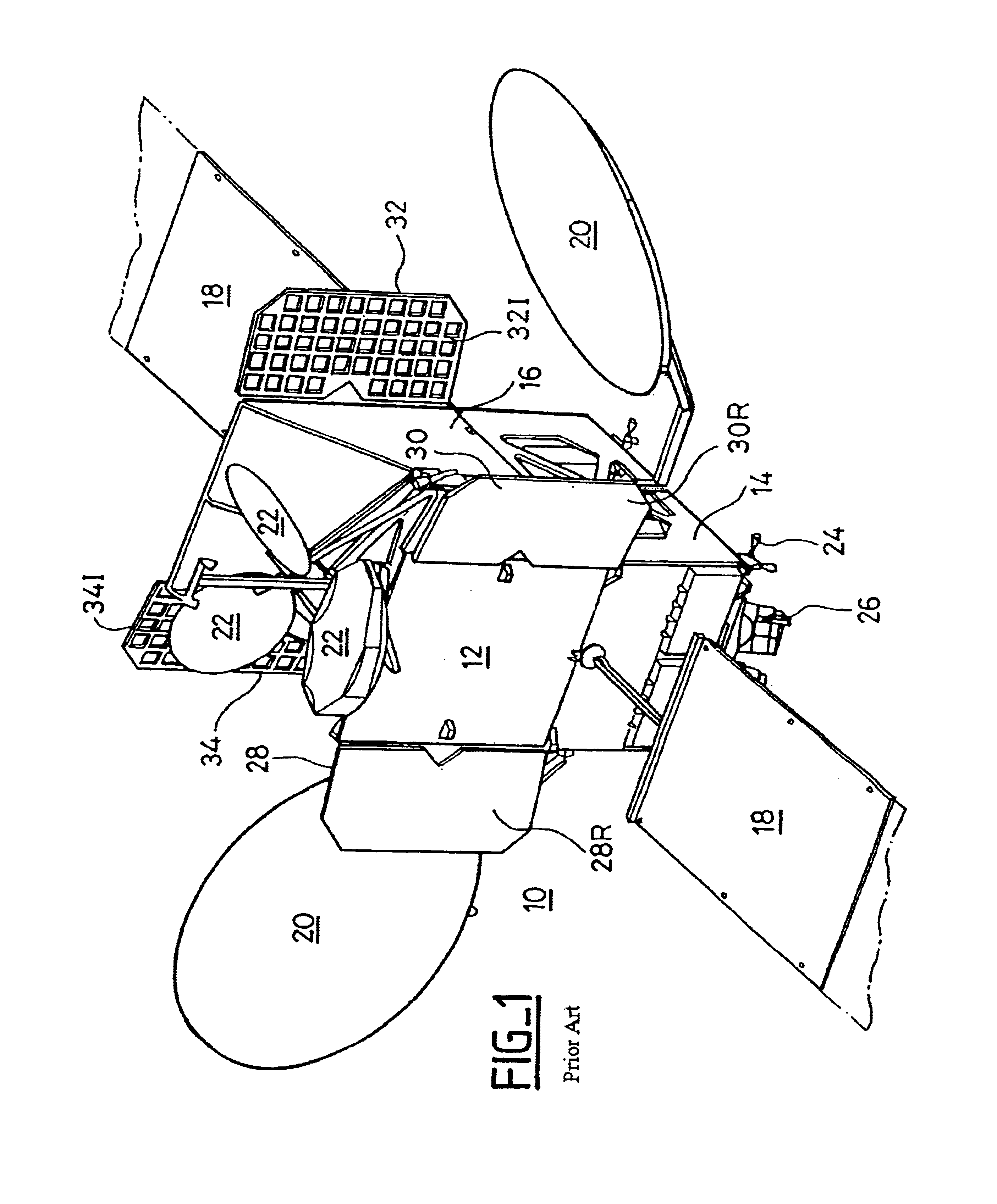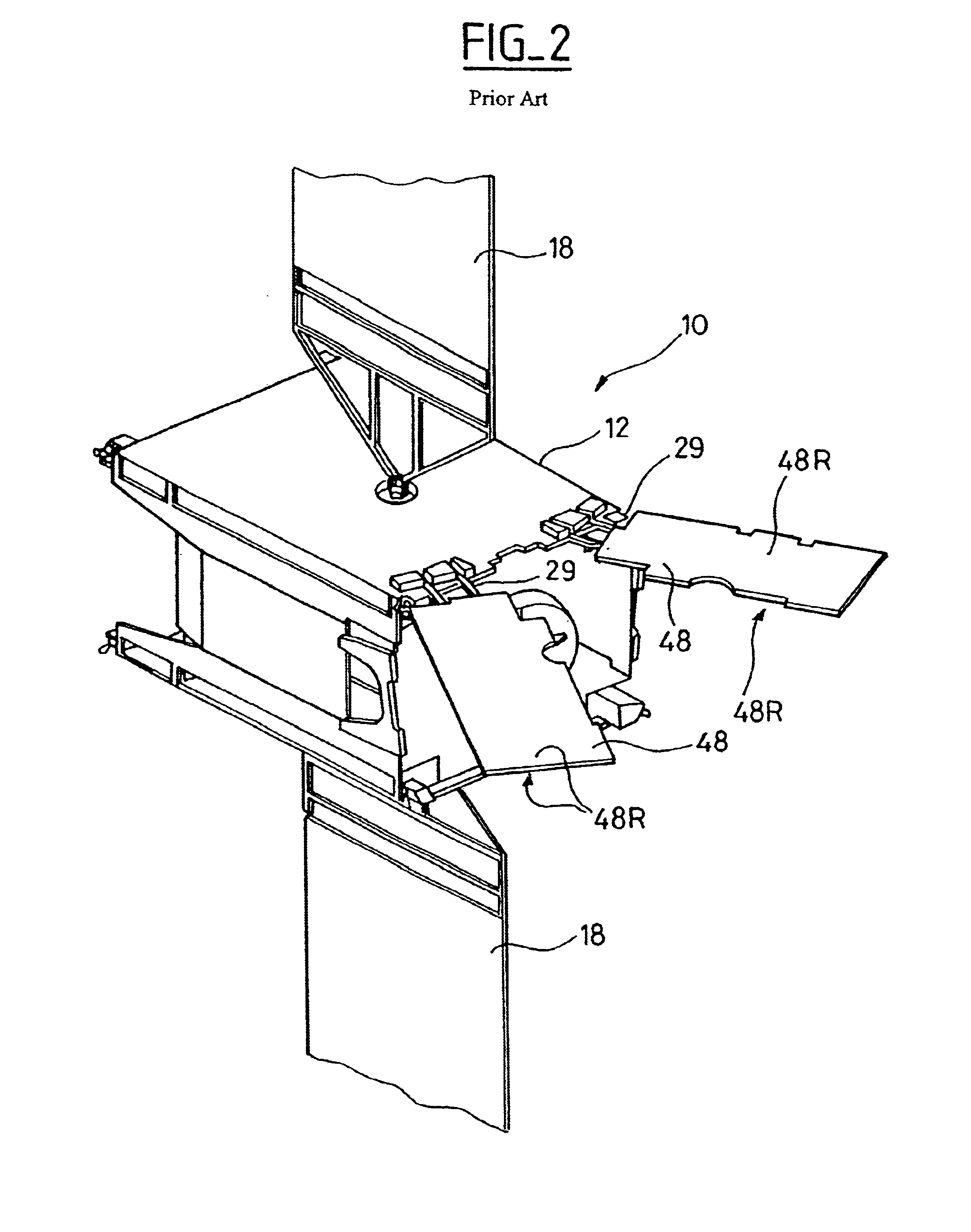Deployable radiator for a space vehicle
a technology for space vehicles and radiators, applied in the field of space vehicles, can solve the problems of compromising the effectiveness of heat radiators, limited energy available for transfer, and inability to provide thermal insulation during the transfer stag
- Summary
- Abstract
- Description
- Claims
- Application Information
AI Technical Summary
Benefits of technology
Problems solved by technology
Method used
Image
Examples
Embodiment Construction
In all the figures, the same references refer to the same elements. The scale is not always the same for reasons of clarity and legibility.
FIG. 1 shows a satellite 10 known in the prior art from document D1. The satellite 10 mainly comprises a service module 14 and a communications module 16. Deployable radiators 28, 30, 32, and 34 are shown in the deployed position.
The heat to be dumped which comes from equipment fixed within the structure 12 of the satellite 10 is conveyed to the radiators by means of heat pipes (not shown) each having a flexible portion corresponding to the hinge(s) for fixing the deployable radiators to the structure 12 of the satellite.
Various pieces of propulsion equipment are provided to maneuver the position of the satellite, both during stages in which the satellite is transferred from one orbit to another, and during the mission of the satellite for the purpose of keeping the satellite on station. In FIG. 1, there can be seen two pairs of chemical propulsi...
PUM
 Login to View More
Login to View More Abstract
Description
Claims
Application Information
 Login to View More
Login to View More - R&D
- Intellectual Property
- Life Sciences
- Materials
- Tech Scout
- Unparalleled Data Quality
- Higher Quality Content
- 60% Fewer Hallucinations
Browse by: Latest US Patents, China's latest patents, Technical Efficacy Thesaurus, Application Domain, Technology Topic, Popular Technical Reports.
© 2025 PatSnap. All rights reserved.Legal|Privacy policy|Modern Slavery Act Transparency Statement|Sitemap|About US| Contact US: help@patsnap.com



